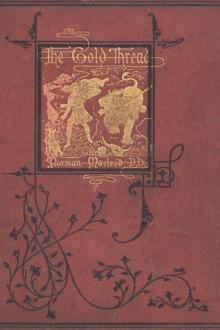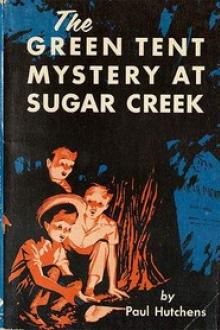Genre Religion. Page - 1

iginal Dutch settlers. Many ceremonies and customs, relics of aruder age, and now nearly forgotten, were still practised. TheRaymonds, although pious, and more intelligent than most of theirneighbours, kept up many of the usages of Fatherland on the Christmasoccasion, perhaps more as wafting them back in remembrance of earlyenjoyment in the home circle, than from any present love of thefestivity common at this period.
The joyful season drew nigh merrily, and in the watchmaker's family,as in all others--for the very poorest look forward hopingly toit--there was nothing but bright anticipations, which were for thepresent realized. The Christmas cake was prepared in the most approvedold fashion; the dark-hued pine was duly ornamented, and occupied aconspicuous place in the family room, and little William was made mosthappy in the receipt of many gifts, although toy paints and pencilswere not among the number.
But what says the Scripture? "Boast not thyself of to-morrow, for thouknowest not wh

han Eric. "Now," said the old woman gruffly, when she took away the remains of the supper, "you have ate what would do me for a week. You won't starve, Master Prince. Go to bed." The old woman left him, but suddenly returning, she discovered Eric on his knees. As he rose, she scoffed and jeered him, and asked, "Do you always say your prayers?" "Yes, always," replied the boy. "Who taught you?" "My mother, who is dead." The old woman heaved a deep sigh, but the boy did not know why. Perhaps she used to pray when she was a little girl herself, and had given up speaking to God, or even thinking of Him, and so had become wicked; or perhaps she thought of some child of her own whom she had never taught to pray. She soon went away without speaking a word more, and Eric was left in darkness. He looked out through the narrow window of his room, but could see nothing but black clouds rushing over the sky. Far down he heard a stream roaring, and the wind, which now blew a gale, came booming over the tree-tops, and howli

to His fallen creatures, than to have revealed a book which would leave them in doubt and uncertainty, to contend with one another, from age to age, respecting the meaning of its contents. That such uncertainty and contention have existed for ages, none will deny. The wise and learned have differed, and do still widely differ, from each other, in the understanding of prophecy. Whence then this difference? Either Revelation itself is deficient, or else the fault is in mankind. But to say Revelation is deficient, would be to charge God foolishly; God forbid: the fault must be in man. There are two great causes for this blindness, which I will now show:
First, mankind have supposed that direct inspiration by the Holy Ghost was not intended for all ages of the Church, but was confined to primitive times; the "Canon of Scripture being full," and all things necessary being revealed; the Spirit which guides into all truth was no longer for the people: therefore they sought to understand, by their own wisdom,

The first friend a child has in this world is its mother. It comes here an utter stranger, knowing no one; but it finds love waiting for it. Instantly the little stranger has a friend, a bosom to nestle in, an arm to encircle it, a hand to minister to its helplessness. Love is born with the child. The mother presses it to her breast, and at once her heart's tendrils twine about it.
It is a good while before the child becomes conscious of the wondrous love that is bending over it, yet all the time the love is growing in depth and tenderness. In a thousand ways, by a thousand delicate arts, the mother seeks to waken in her child a response to her own yearning love. At length the first gleams of answering affection appear--the child has begun to love. From that hour the holy friendship grows. The two lives become knit in one.
When God would give the world a great man, a man of rare spirit and transcendent power, a man with a lofty mission, he first prepares a woman to be his mother. Whenever in

me future there would come into the world a mighty man; that he would be born a Jew (Deuteronomy 18:15), specifying the place where he would be born (Micah 5:2); that he would come to his own people and they would not receive him; that he would be despised and rejected of men, a man of sorrows and acquainted with grief (Isaiah 53:1-3); that he would ride into Jerusalem upon an ass, the foal of a like animal, and offer himself as king to the Jews (Zechariah 9:9); that he would be rejected by the Jews (Isaiah 53:3); that he would be betrayed for thirty pieces of silver (Zechariah 11:12); that he would die, but not for himself (Daniel 9:26); that there would be no just cause for his death (Isaiah 53:8,9,11); that nevertheless he would be numbered among the transgressors (Isaiah 53:12); that he would die a violent death, yet not a bone of his body should be broken (Psalm 34:20); that his flesh would not corrupt, and that he would arise from the dead (Psalm 16:10)--all of which and many more similar prophecies wer

ften fathomed those "abysmal deeps of personality," the recognition of which is a necessary element of marked individual growth.
We have, therefore, no materials for forming any vivid picture of Seneca's childhood; but, from what we gather about the circumstances and the character of his family, we should suppose that he was exceptionally fortunate. The Senecas were wealthy; they held a good position in society; they were a family of cultivated taste, of literary pursuits, of high character, and of amiable dispositions. Their wealth raised them above the necessity of those mean cares and degrading shifts to eke out a scanty livelihood which mark the career of other literary men who were their contemporaries. Their rank and culture secured them the intimacy of all who were best worth knowing in Roman circles; and the general dignity and morality which marked their lives would free them from all likelihood of being thrown into close intercourse with the numerous class of luxurious epicureans, whose unblu

ling depth of thesefeelings be written--with these I prayed, as if they were the keys of aninstrument, of an organ, with which I swelled forth the note of my soul,redoubling my own voice by their power. The great sun burning with light;the strong earth, dear earth; the warm sky; the pure air; the thought ofocean; the inexpressible beauty of all filledme with a rapture, an ecstasy, and inflatus. With this inflatus, too, Iprayed. Next to myself I came and recalled myself, my bodily existence. Iheld out my hand, the sunlightgleamed on the skin and the iridescent nails; I recalled the mystery andbeauty of the flesh. I thought of the mind with which I could see the oceansixty miles distant, and gather to myself its glory. I thought of my innerexistence, that consciousness which is called the soul. These, that is,myself-- I threw into the balance to weight the prayer the heavier. Mystrength of body, mind and soul, I flung into it; I but forth my strength; Iwrestled and laboured, and toiled in might o

re crossing the way of each other.The gentleman's name that met him was Mr. Worldly-wiseman; hedwelt in the town of Carnal Policy, a very great town, and alsohard by from whence Christian came. This man, then, meeting withChristian, and having some inkling[19] of him, for Christian'ssetting forth from the City of Destruction was much noised abroad,not only in the town where he dwelt, but, also, it began to be thetown-talk in some other places. Master Worldly-wiseman, therefore,having some guess of him, by beholding his laborious going, byobserving his sighs and groans, and the like, began thus to enterinto some talk with Christian.
WORLD. How now, good fellow, whither away after this burdenedmanner?
CHR. A burdened manner, indeed, as ever, I think, poor creaturehad! And whereas you ask me, Whither away? I tell you, Sir, I amgoing to yonder wicket-gate before me; for there, as I am informed,I shall be put into a way to be rid of my heavy burden.
WORLD. Hast thou a wife and children?
C

